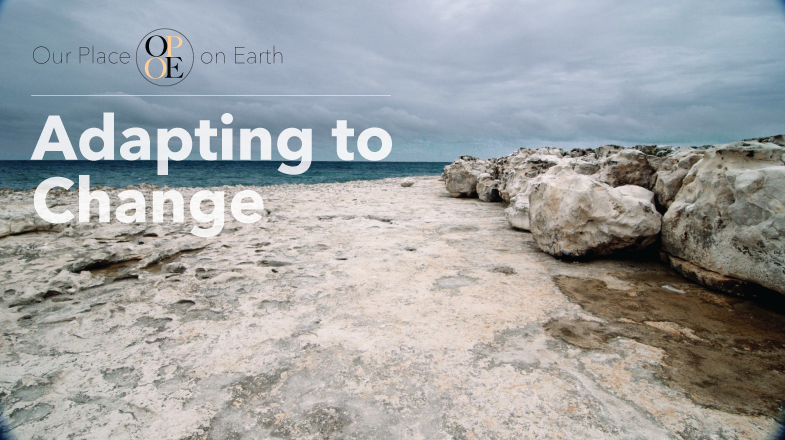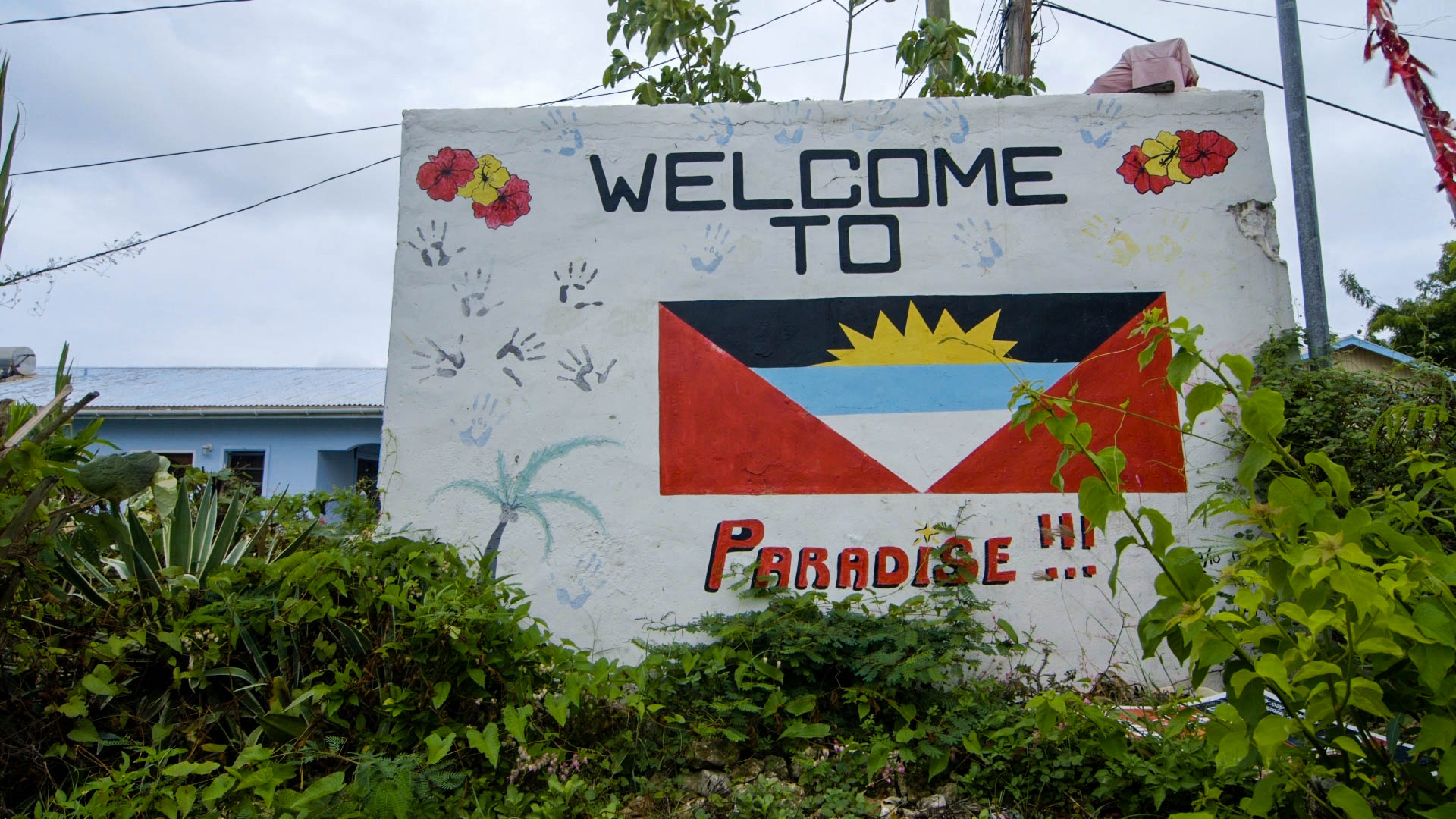Adapting to Change
Communities across the Caribbean face dramatic climate impacts. For them, rapid adaptation is essential. In this chapter, OPOE explores the different strategies Caribbean communities are taking to adapt their lives to an unpredictable future. Pretty Good Productions
Our Place on Earth, Chapter 2 - Adapting to Change
Sandbar separating the Caribbean Sea from Codrington Lagoon, Barbuda
Communities across the Caribbean face dramatic climate impacts and rapid adaptation is essential. In this chapter, OPOE explores the different strategies Caribbean communities are taking to adapt their lives to an unpredictable future.
Voices from the Film:
"Climate Change is not a disaster..."
John Mussington,co-founder BRC, in front of a mural, painted as part of a children's climate education program.
...says John Mussington, “it doesn’t mean that we have to pack up our things and leave the island.” An educator, with a Bachelors in Natural Sciences (Chemistry & Biology) and a Post
Graduate Diploma in Natural Resource Management and Environmental
Studies (UWI-CERMES), John has the perspective, drive, and creativity Barbuda needs right now. "Barbuda is at a crossroads," he continues, "and we can swing in either direction. And a bad decision can end us up as a nation of beggars.”
Descendants of a former slave colony left to fend for themselves after emancipation, Barbudans have a long tradition of self-sufficiency and collective land use. Growing up with a deep understanding of the island’s history, John wants to see Barbuda’s unique way of life continue, despite the forces of international development and now climate change. His strategy is both technical - focusing on aquaponics research to produce fresh vegetables and fish in times of drought - and educational, teaching young Barbudans about the value of protecting what they have. "People will pay millions of dollars to take your place," he tells them. "You have something that is superior, and you should work to build upon it and maintain it."
*
"Being an environmentalist means, to me...
...being a true advocate for your society," says Katrina Collins, founder of Union Island's Environmental Attackers. "For me, humans and the environment are interconnected."
Because she doesn't have an “advanced degree”, as she says, Katrina was shy about getting involved as an advocate on Union Island. But encouraged by a conversation with an Union tourist, Katrina launched the Environmental Attackers, a group that lives at the intersection of society and the environment. Their list of programs ranges from providing large rainwater harvesting tanks to low-income residents - so they'll have clean water in times of drought - to training community members as birdwatchers and hiking guides to create local jobs in the the tourism industry. The Attackers also train residents as turtle handlers, to help monitor and protect the island's turtle populations. "We need to work hand in hand with [the environment], so we can protect it more, encourage people to do what’s right, and we also have to practice."
At the community level, "practice" is an important feature of building climate resiliency. In the face of uncertainty - and to create the change you want - often the best thing to do is just take action: to strive, to learn, to collaborate, and then step back, see if it’s working, adjust, and try again.
In the next OPOE chapter, For All of We, Guillaume Craig from the NGO, blueEnergy, echoes this message, stating - “I believe that it's every organization's and every community's job to figure out what works for them. And you can’t figure things out if you aren’t doing things.”
Dig Deeper
Community Capacity: Enabling Local Leaders
An OPOE Case Study
St. Vincent and the Grenadines, a Small Island Developing State in the Eastern Caribbean, is extremely vulnerable to the impacts of climate change. However, this isn’t stopping citizens, community groups, and the government from taking action. In fact, an understanding of local vulnerability is serving as a catalyst for action across sectors and scales. Explore how three communities across the country are finding the inspiration to build their resilience in the face of a changing climate.












